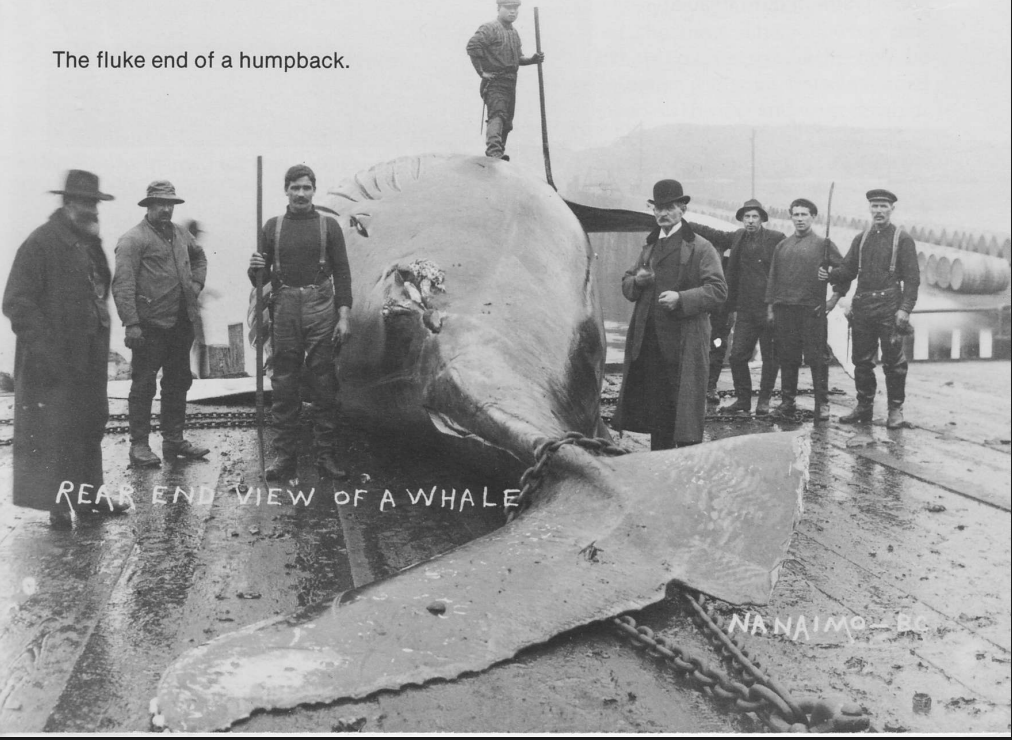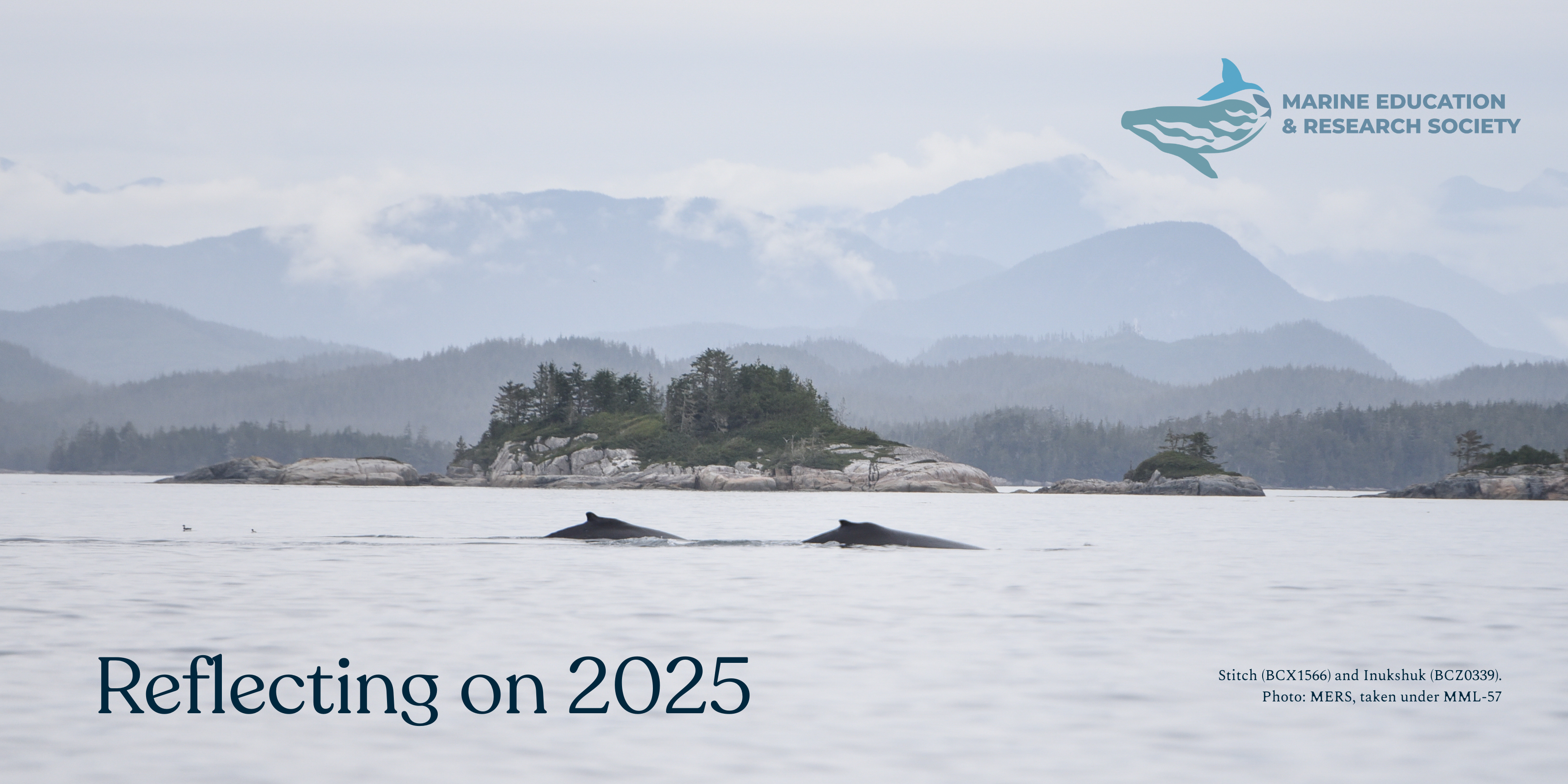Please see below regarding the action needed for Fin Whales.
This includes a listing of our concerns to help members of the public provide input into the decision-making. The public consultation period ends December 2nd and involves only a few questions.
Click here for the direct link to the survey.

Protection should not be reduced for Fin Whales in BC waters
Threats increasing, species particularly vulnerable to collision with large vessels
Fin Whales are the second largest animals that have ever lived (Balaenoptera physalus to 25 metres long). Fin Whales were heavily impacted by industrial whaling in Canadian waters and received protection under Canada’s Species at Risk Act as a Threatened population in 2006. Of all whale species, Fin Whales are reported to be hit by large vessels more than any other.
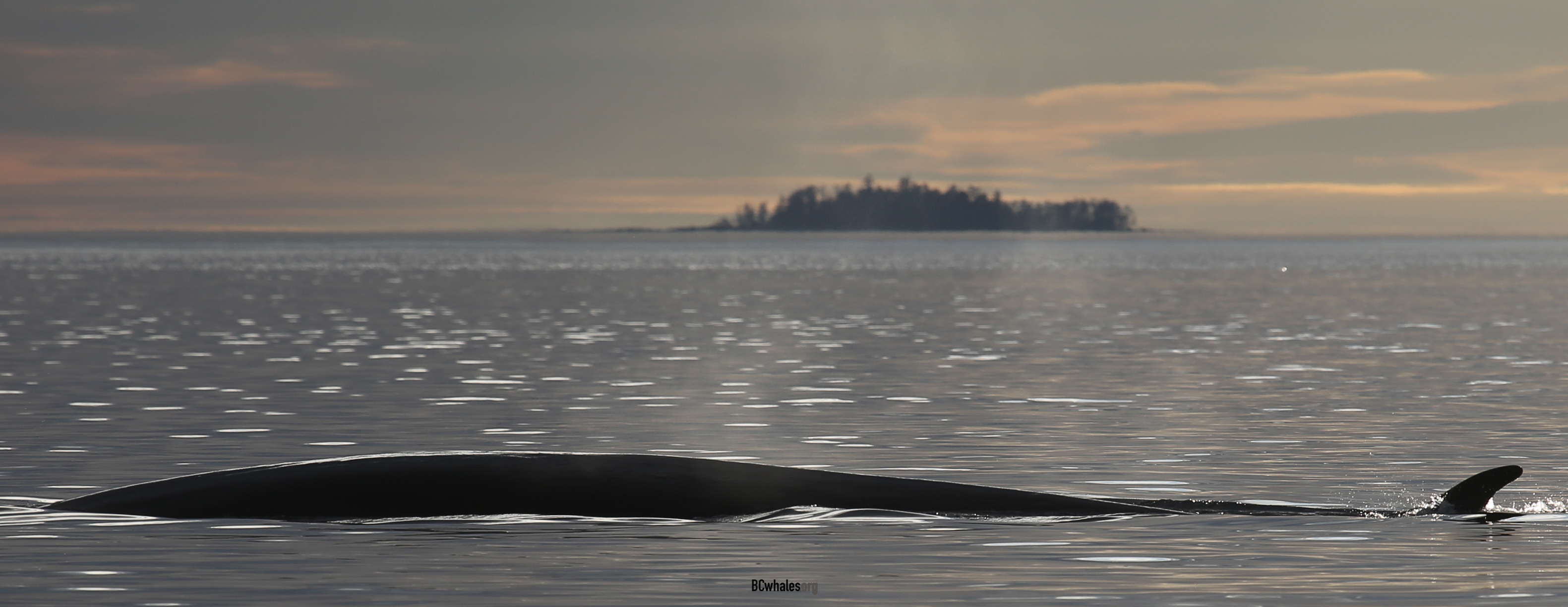
The latest assessment report by the Committee on the Status of Endangered Wildlife in Canada (COSEWIC) makes recommendations that would reduce the protection of Fin Whales in British Columbian waters. The Government of Canada is considering this recommendation through a public consultation process, happening now.
We, representatives of the North Coast Cetacean Society and Marine Education and Research Society, hereby express our significant concerns. We call upon others to provide feedback via this consultation process that the protection of Fin Whales under Canada’ Species at Risk Act should not be reduced. Deadline for comment is December 2nd, 2022.
Recent discoveries of whales killed by ship strike, should act as an impetus for why increased action for Fin Whales is needed. Among the dead is the young male Fin Whale who died from being hit by a large vessel and was found on a beach on the Sunshine Coast in March 2022.
Our concerns include:
- Population size for Fin Whales in British Columbian waters is not known to have recovered to what it was before industrial whaling and it is not known if the Fin Whale population is increasing in British Columbian waters. This is acknowledged in the COSEWIC report.
- The threats Fin Whales face are likely to increase, rather than decrease.
- Fin Whales are particularly susceptible to ship strike. In addition to a general increase in global shipping, LNG projects in British Columbia will increase the number of tankers and tugs transiting through Fin Whale habitat, amplifying risk of collision and impacts of underwater noise. From the COSEWIC report: “Vessel strikes are a significant source of human-caused mortality to Fin Whales in areas of intense shipping activity on both coasts. Multiple cases of Fin Whale carcasses being carried into ports on the bows of ships have been documented along both east and west coasts, although the actual rate of mortality is uncertain. Many fatal vessel strikes may be unreported as animals struck and killed are likely to sink and go undetected.”
- Climate change is anticipated to impact the food supply of Fin Whales. Extreme climate variability already appears to have had an impact. It was implicated in the Unusual Mortality Event of Fin and Humpback Whales along the coast of BC and Alaska from 2015 to 2016.
- Not enough is known about the population structure of the Fin Whales.
The COSEWIC assessment:- Presumes that all Fin Whales sighted in British Columbian waters belong to the same population. However, there is some evidence that there may be multiple populations in these waters. It is not even known where these Fin Whales breed.
- Relies on the assumption that Fin Whales in British Columbian waters belong to the same population as Fin Whales in the waters of Washington, Oregon, California and Alaska and that these whales would immigrate into Canadian Pacific waters if the number of Fin Whales in BC waters decreased. This is known as the “rescue effect”. This is problematic because:
- There is very little evidence to support that these Fin Whales all belong to the same population nor that there is interchange between these areas. To the contrary, there is research supporting that Fin Whales have strong site fidelity, returning to the same specific feeding areas in Canadian Pacific waters year-after-year. Fin Whales in these American waters are protected as Endangered under the US Endangered Species Act.
Were Fin Whales to be downlisted to a species of Special Concern, the reduced protection under Canada’s Species at Risk Act would mean:
No Recovery Strategy nor Action Plan to reduce threats.
No prohibitions against killing, harming and harassing.
No identification nor protection of critical habitat.
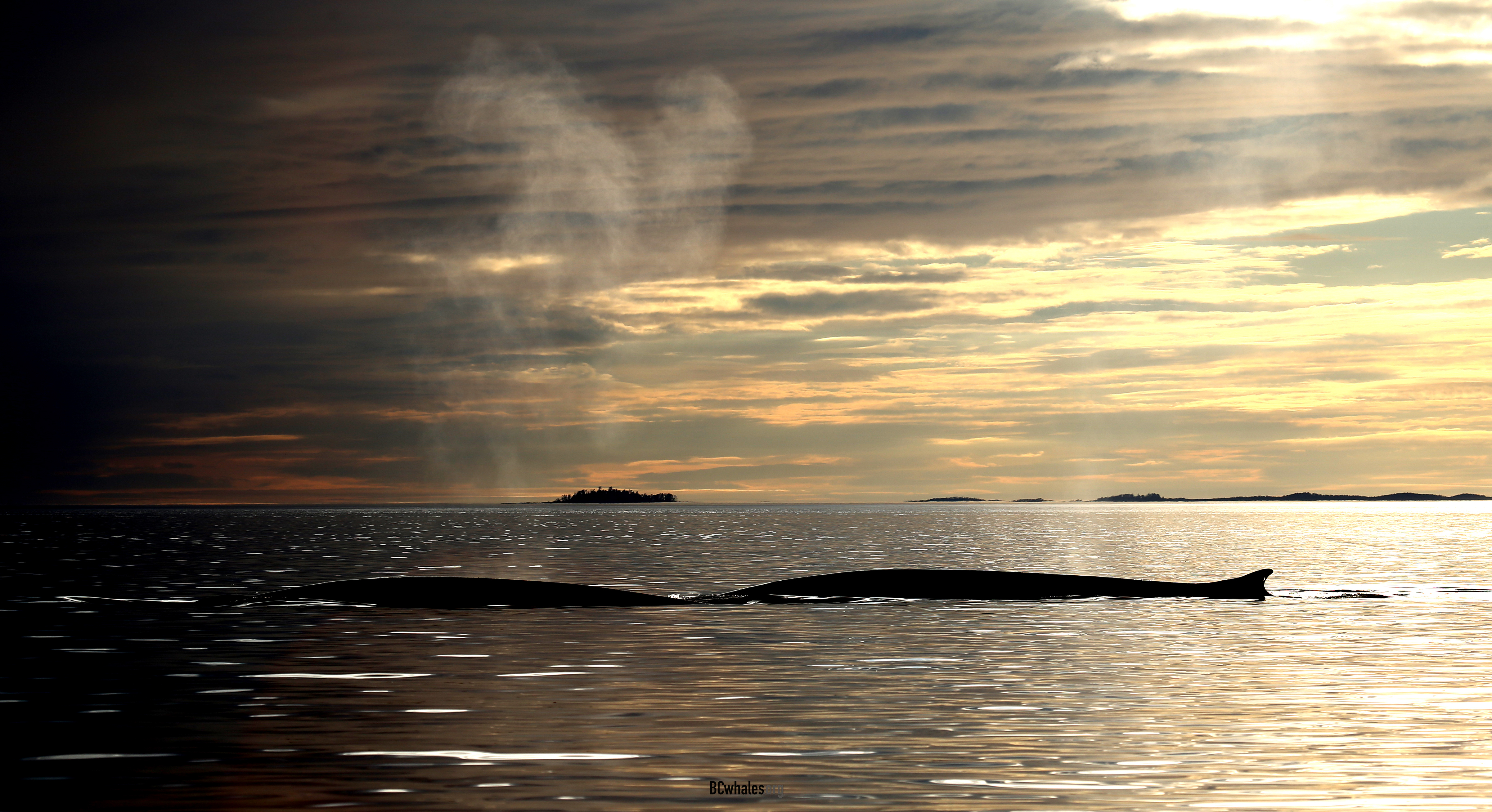
Click here to provide comment through the public consultation period.
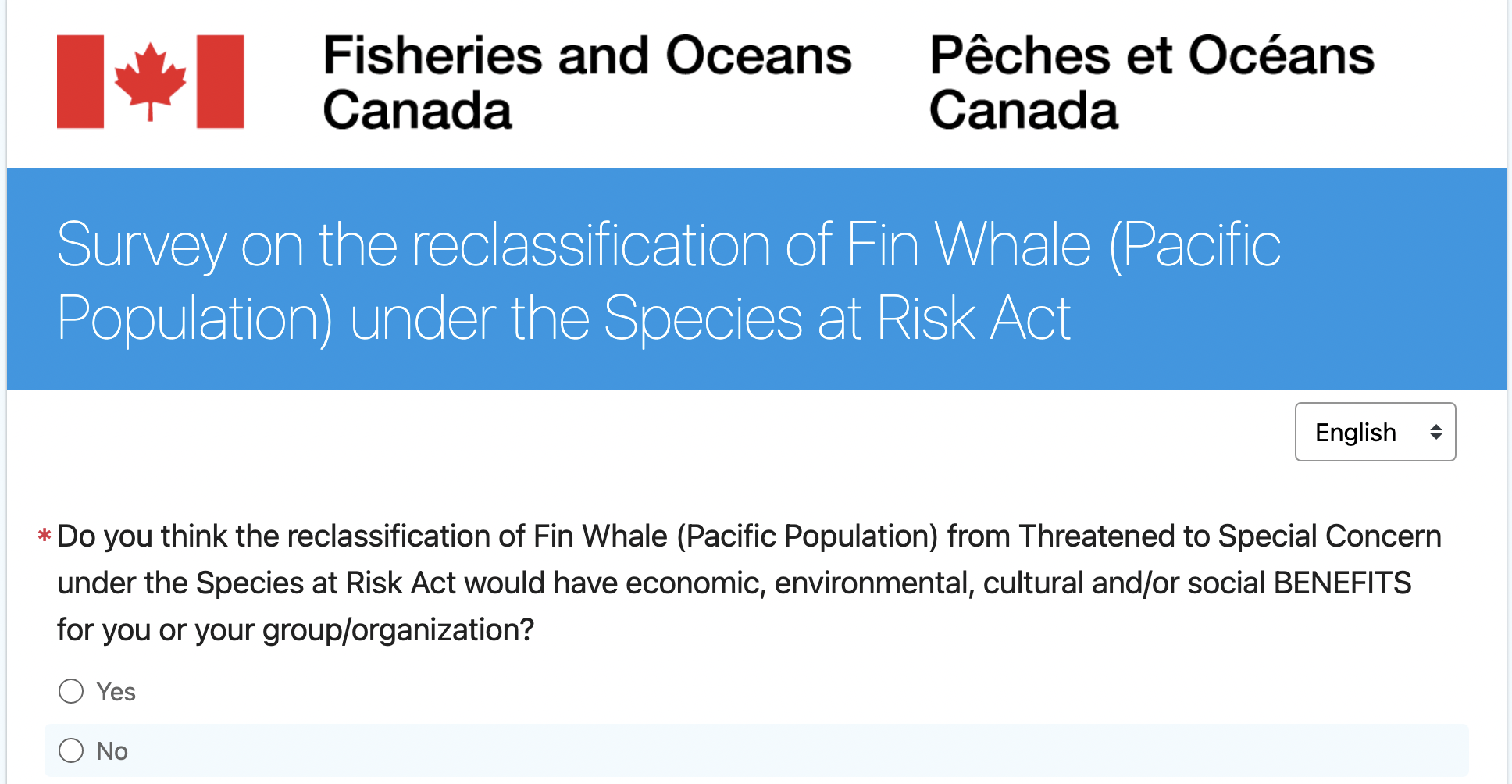
Quotes:
Eric Keen, whale researcher and Science Director with the North Coast Cetacean Society said: “This is a crucial time for Fin Whale recovery in BC. The combination of climate change, shipping noise, and ship strikes poses an unprecedented threat. We do not yet know enough about this threat, or about the BC Fin Whale’s status in general, to take away the federal mechanism for protecting this species’ habitat. Now is the time for caution, collaboration, and research.”
Jackie Hildering, Communications and Education Director of the Marine Education and Research Society, said: “It is the antithesis of precaution to reduce protection of Fin Whales when there is so much that is not known about their population and when threats are increasing due to climate change, noise, and risk of collision.”
Janie Wray, CEO and Co-founder of the North Coast Cetacean Society said: “It is extremely alarming that, when a species begins to display signs of recovery, the response is to decrease actions necessary to ensure that this positive trend is in fact real and will continue.”
For media inquiries and access to the media pack:
- info@mersociety.org / 250-230-7136
- Interviews would be with:
Dr. Eric Keen – North Coast Cetacean Society - Jackie Hildering / Caitlin Birdsall – Marine Education and Research Society
Background:
The Marine Education and Research Society (MERS) studies threats to cetaceans and educates to reduce these threats, with a focus on entanglement and vessel strike. Research efforts include tracking the occurrence of Fin Whales in our study area. MERS works and learns in the Territory of the Kwakwala-speaking people, northeastern Vancouver Island. www.mersociety.org
The North Coast Cetacean Society (NCCS) has dedicated the last 24 years towards research, education, and the protection of whales along the north and central coast of British Columbia. In partnership with the Gitga’at First Nation, we have documented the return of Fin Whales to the northern waters of BC, combining acoustics, marine and land-based surveys to better understand their seasonal distribution, abundance, social dynamics and habitat use. www.BCWhales.org
Links:
Fin Whale, Pacific Population: Consultations on listing under the Species at Risk Act
Sources:
- COSEWIC. 2019. COSEWIC assessment and status report on the Fin Whale Balaenoptera physalus, Atlantic population and Pacific population, in Canada. Committee on the Status of Endangered Wildlife in Canada. Ottawa. xv + 72 pp.
- Keen, E., Pilkington, J., O’Mahony, É., Thompson, K., Hendricks, B., Robinson, N., Dundas, A., Nichol, L., Alidina, H., Meuter, H., Picard, C. and Wray, J., 2021. Fin whales of the Great Bear Rainforest: Balaenoptera physalus velifera in a Canadian Pacific fjord system. PLOS ONE, 16(9), p.e0256815.
- Nichol, L.M., Abernethy, R.M., Wright, B.M., Heaslip, S., Spaven, L.D., Towers, J.R., Pilkington J.F., Stredulinsky, E.H., and Ford, J.K.B. 2018. Distribution, movements and habitat fidelity patterns of Fin Whales (Balaenoptera physalus) in Canadian Pacific Waters. DFO Can. Sci. Advis. Sec. Res. Doc. 2017/004. vii + 52 p.
- Nichol, L.M. and Ford, J.K.B. 2018. Information in Support of the Identification of Habitat of Special Importance to Fin Whales (Balaenoptera physalus) in Canadian Pacific Waters. DFO Can. Sci. Advis. Sec. Res. Doc. 2018/031. vi + 29 p.
- Towers, J.R., M. Malleson, C.J. McMillan, J. Cogan, S. Berta, and C. Birdsall. 2018. Occurrence of fin whales (Balaenoptera physalus) between Vancouver Island and continental North America. Northwestern Naturalist 99: 49-57.
Media Coverage:
- CHEK News, November 3, 2022, Fin whales may have ‘threatened’ status removed, drawing concern from B.C. conservation groups
- Global News, November 11, 2022, Ship strikes a threat to recovering whale population in B.C., expert says
- National Observer, November 10, 2022, Are at-risk fin whales in hot water from LNG and climate change?
- Vancouver Sun, November 13, 2022, Expert fears West Coast fin-whale protections will be downgraded just as risks ramp up – Climate change and projected LNG shipments from Kitimat pose risks for the sleek whale
